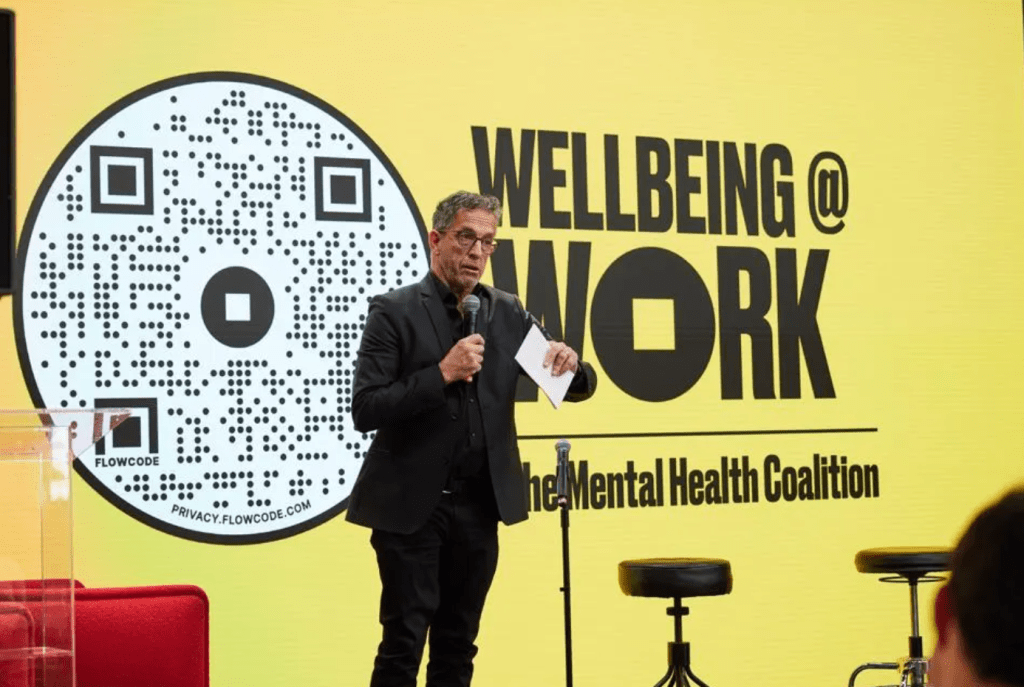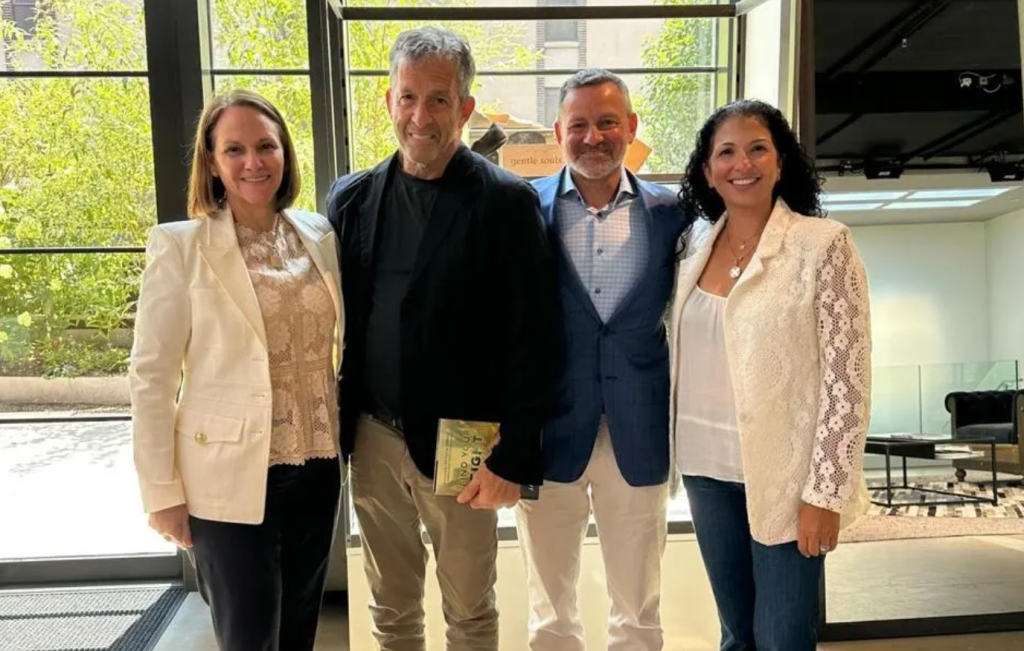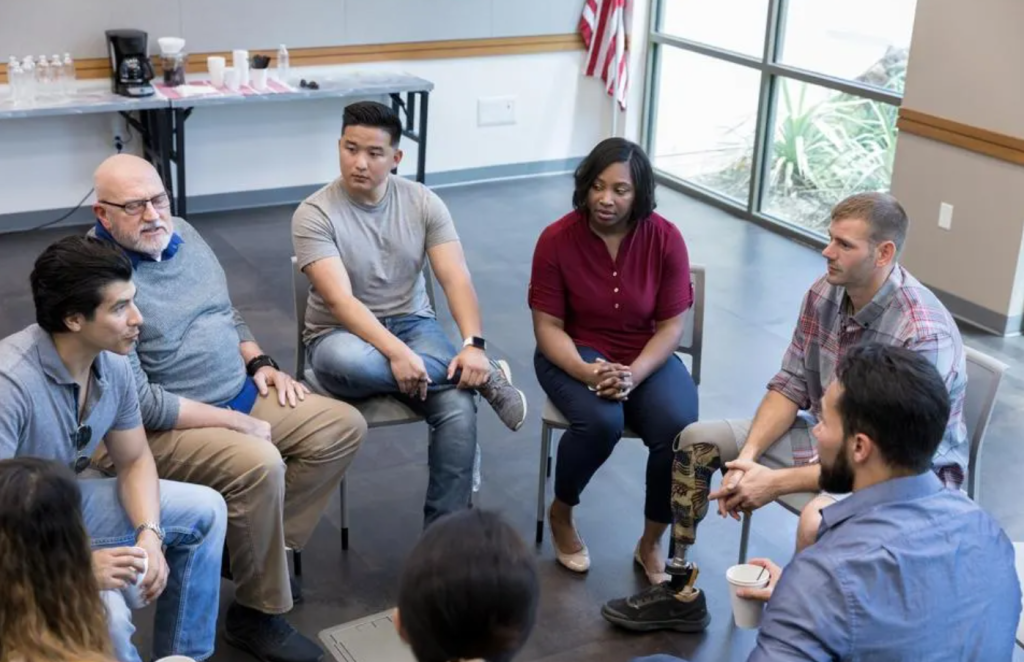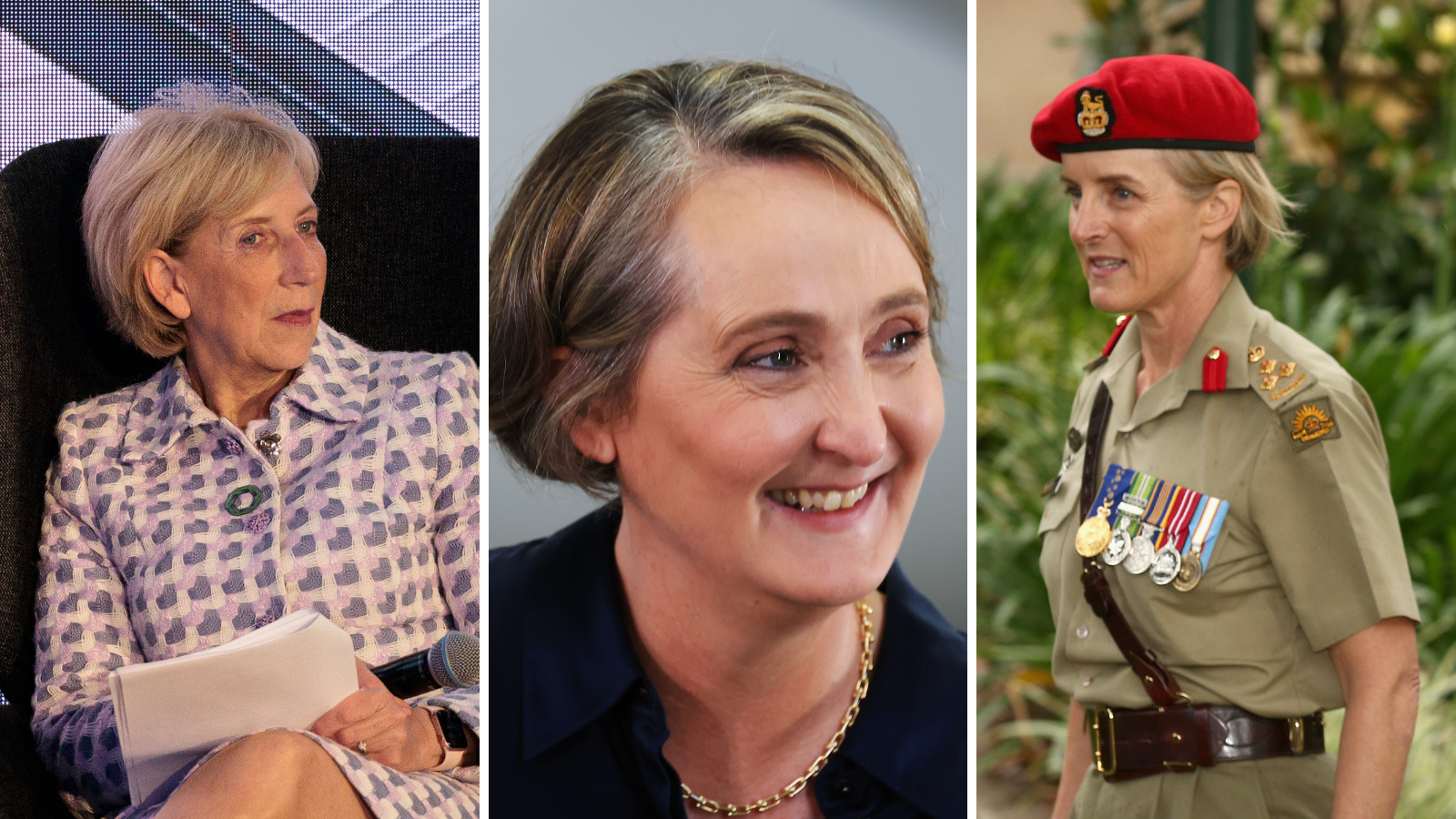Acknowledging what we feel is one of the simplest and most powerful acts in mental well-being. Still, many high performers bypass that step, believing silence equals strength. This coaltion is working to do something about it.

We’ve been conditioned to say, “Fine,” when asked how we’re doing. Even if we hesitate, we still offer a polite “I’m good,” then quickly redirect the conversation. Across workplaces and even casual conversations, many people have learned to hide their emotions behind a practiced calm.
And yet, culturally, we’ve never talked about mental health more. Burnout, anxiety and boundaries have moved from the margins into everyday vocabulary. Naming the problem hasn’t made it easier to solve. If anything, the pressure to appear composed has only pushed emotional strain further inward.
More than 1 billion people globally are currently living with a mental health condition, according to the latest 2025 data from the World Health Organization. That’s roughly 1 in 7 people worldwide.
A new era of advocacy and action
Acknowledging what we feel is one of the simplest and most powerful acts in mental well-being. Still, many high performers bypass that step, believing silence equals strength. That silence is exactly what the Mental Health Coalition, founded in 2020 by fashion icon and activist Kenneth Cole, set out to dismantle.
MHC is a collective of leading mental health organizations, brands, cultural influencers and corporate partners united to end stigma and expand access to care. It works by creating public campaigns and workplace initiatives that make mental health conversations more visible and actionable across society.
Cole’s advocacy began decades earlier during the HIV/AIDS crisis, an experience that showed him how stigma devastates lives and why silence is so dangerous.

As he explains, “I did some work, marketing work on this, the debilitating stigma and relationship to HIV in the 80s, when nobody was talking about it. To talk about it, assumed you were at risk, and those, all those who were at risk, were ostracized.”
And for Cole, stigma is more than a public health challenge. It’s a storytelling challenge. Although widely known for his apparel brand, the fashion designer’s legacy lies in his continued advocacy around taboo issues, even those plaguing the workplace.
This year, Cole became the recipient of the 2025 Morton E. Ruderman Award in Inclusion, one of the field’s most respected honors. Past recipients include public figures who have transformed their platforms into engines of cultural change, such as Selena Gomez, Eva Longoria, and Kevin Love.
MHC emerged as a way to bring together the nation’s leading mental-health organizations, cultural voices and corporate partners behind a shared mission: dismantle stigma and expand access to care.
“By raising the issue and talking about stigma, it helps to normalize the issue,” states Jay Ruderman, president and trustee of the Ruderman Family Foundation. “It helps to bring it to the forefront, so that it’s dealt with, and not just swept under the rug. Kenneth [Cole] is someone we decided, first of all, is a true activist, and, more recently, in mental health. He’s the first person that we’ve honored who’s from the business community.”

One of MHC’s most influential initiatives is the Wellbeing at Work Day. The third annual event will be held in New York City next month. The national summit convenes hundreds of executives, clinicians and cultural leaders to share strategies for embedding mental health into the fabric of corporate culture.
“Mental health is probably the single largest dilutive real force in corporate not just in America, but globally,” Cole states. “Apparently, trillions of dollars are lost every year, several 100 billion dollars in work days and absenteeism. It doesn’t have to be that way, because there is unequivocal evidence that resource allocation improves quantitatively retention, recruitment, morale and ultimately productivity. What we figured we do is come up with a mechanism to share best practices everybody can benefit from that, and bring critical resources to these corporations and help them themselves and each other.”
Expanding support for those who serve
While national coalitions move the cultural conversation forward, another urgent effort is focused on those who experience trauma as part of their daily work.
TTM, PTP Inc. (Talk To Me Post Tour), a registered 501(c)(3), has expanded its pioneering peer-support program for first responders to include U.S. veterans. This marks a pivotal new chapter for a program already reshaping how frontline workers process trauma.
PTP serves police, firefighters and EMTs, professionals who may witness more trauma in a single shift than most civilians experience in a lifetime. Yet many avoid seeking help due to stigma or fears of professional consequences, leaving PTSD, emotional numbing, and heightened reactivity untreated.
Dr. Jean Cirillo, the clinical and forensic psychologist who oversees PTP’s mental-health protocols, explains why emotional readiness cannot be separated from operational readiness: “If the mental health part of you isn’t working, it’s hard to keep anything else functioning, especially for people in high-stress, high-risk situations or jobs that require quick responses.”
PTP’s model works because it is built on anonymity and credible peer support. The support meets responders and veterans exactly where they are. Cirillo emphasizes that the program’s anonymous structure reduces fear and restores trust.

“They have someone who understands what they’ve been through,” she states. “They can come on anonymously. They’re not forced to do anything they’re not comfortable doing, including reveal their identity.”
For veterans, this structure provides something rare: a space to be honest without consequence.
Building a healthier path forward
Mental health programs are an infrastructure. It determines how we learn, work, lead, connect and recover. Dr. Stephanie Doyle, a clinical social worker and psychotherapist based in New York with nearly 20 years of experience, states, “Hands down, the most important skill to practice is self-compassion.”
Additionally, she shares:
- Healing begins with awareness by noticing the physical signs of anxiety and tension that arise in relationships or emotionally charged moments.
- Self-soothing and nervous-system regulation help us slow down, create internal safety and reconnect with our authentic selves.
- When we calm the anxiety intertwined with relationships, we create more space for self-trust and authentic connection.
- True resilience isn’t just coping; it’s allowing ourselves to feel pain, integrate it and use it to strengthen purpose, deepen connection and build trust in our own capacity to navigate life honestly.
The crisis is collective, and so is the momentum toward change. Mental health is no longer a side conversation. Every honest dialogue lessens the stigma, and every psychologically safe workplace opens the door for more people to step forward and begin healing. As awareness grows, so does our shared capacity to create environments where well-being is treated not as an exception, but as an expectation.
“If you want to address this issue at scale, the workplace is the only place you can do it,” Cole concludes.
Look back on the week that was with hand-picked articles from Australia and around the world. Sign up to the Forbes Australia newsletter here or become a member here.


